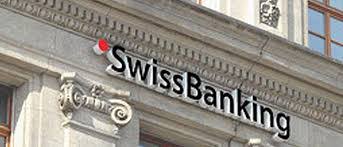Swiss banks are now one of the most popular banks with which you can collaborate for account security and privacy. However, to open an account, you’d need to meet certain conditions and go through the processes either online or in person. In this article, we will go over the steps you’d need to follow when you need to open a Swiss bank account, some of the best options for foreigners or Swiss citizens, and a couple of advantages in relationship with bank interest rates.
Swiss Bank Account
We all know Swiss banks for offering secrecy and security. It’s not as though all Swiss banks have sworn off dealing with foreign clients. However, when it comes to non-Swiss residents who seek to open Swiss bank accounts, they are now considerably more careful and regulated.
The Swiss Bankers Association represents the major Swiss banks (SBA). Switzerland is a popular banking destination for investors from all around the world. In addition, good Swiss banks do not have leveraged balance sheets. They are the world’s most well-capitalized banks. International investors are well aware that Switzerland has the best banks for wealth preservation.
The Confidentiality of Swiss Banks
Client information disclosure has been a criminal felony in Switzerland since 1934, and it remains so today. Swiss financial secrecy refers to safeguarding the sensitive information of clients rather than the bank’s secrets.
Many clients have previously taken advantage of the Swiss banking secrecy regulations, which provide complete client anonymity. They have large sums of untaxed money stored away. Tax avoidance was commonplace. It remained unpunished until the advent of the Common Reporting Standard (CRS).
Types of Swiss Bank Accounts
In Switzerland, there are several different types of bank accounts, and they are based on your needs.
#1. Savings and Investment Accounts.
Savings and investment accounts are the best options for you if you want to put money away or invest it. The terms “saving” and “investing” are not interchangeable. Savings accounts, on the other hand, allow you to save money for a long time and earn a smaller return, but with no danger. Investing, on the other hand, allows you to earn a lot more money, but it also comes with the chance of losing a lot of money.
For liquidity, a savings account gives a very low-interest yield. If you require dollars in a hurry, they are safe and dependable.
#2. Currents Accounts
The most basic sort of bank account available in Swiss banks is a current account. You can use this account to receive your salary, pay your expenses, save money, and invest. Furthermore, you can withdraw cash in both Swiss francs and euros.
Foreign citizens can only open current accounts if they already have an investment account with the same bank with a minimum deposit of one million CHF.
#3. Joint Accounts
Joint accounts, as their name implies, can be useful for two people, and both have full access to any funds. However, both parties can hold the joint accounts 50:50. However, if both designated holders agree, they can hold the account in various amounts.
#4. Private Banking Accounts
A private banking account is a type of investment account that requires a minimum deposit of one million Swiss francs to open. They should be in a diverse portfolio of investments. Don’t put all your eggs in a single basket. Diversification of your portfolio is essential for reducing financial risk. Because of this, there is a need for a large sum of money for a well-diversified portfolio. Avoid the dangers of clusters.
#5. PEP Accounts
A PEP account is one that is held in the name of someone who is politically exposed. Because there is a significantly higher risk of money laundering with polluted money derived from corruption, these accounts are constantly monitored.
#6. Numbered Swiss Bank Accounts.
Numbered accounts are high-security accounts offered by select Swiss banks to provide an extra degree of privacy to account holders. However, these accounts come with high fees that might reach CHF 2,000 per year. Authorization is given to banks to prohibit overseas payments and monitor significant payments for money laundering purposes for such accounts.
How To Open A Swiss Bank Account
There are specific ground conditions that you must follow in order to settle this, whether you are in Switzerland or overseas. The requirements can vary greatly depending on the economic backdrop of the funds’ origin and history, as well as the client’s identification, including place of residence and nationality. Here are the requirements you need to open a Swiss bank account successfully:
#1. Documentation
Switzerland’s banks, like all banks around the world, must meet certain basic requirements.
- You need a valid passport.
- Verification of your income’s source (this could be a statement from your last bank)
- Confirmation of your listed address
If you want to open a Swiss account from another country, you’ll need to sign your documents first. You can receive notarized copies or an Apostille stamp, or you can go to your Swiss account’s local branch or the correspondent bank they designated for you.
#2. Eligibility
Even if you look wonderful on paper, there are some countries with which Switzerland will not do business. Whether it was as a result of the Embargo Act or other political exclusions, you are no longer eligible.
#3. The Minimum Balance in a Swiss Bank
The minimum amount required for Swiss bank accounts varies by account type and can range from zero to millions of dollars.
However, opening a bank account in Switzerland necessitates the submission of certain documents.
- The passport photocopy of a current passport (for at least the next six months)
- A brief CV or resume highlighting the applicant’s professional experience.
- Utility bill with the applicant’s residence address
- The Tax Identification Number (TIN) is a number that is used to identify a person.
- Documents proving the source of funds, for example:
- Bank statements that reflect the amount of money, the bank, and the name of the client.
- Real estate sales, copies of deeds of sale, land register extracts, and inheritance documents
- Divorce settlement copy
- The distribution of dividends
- Agreement on Donation
- Intellectual property and royalties
- Firms’ domains and organizational charts are owned.
- Initial Public Offerings, or IPOs, are contracts that reflect the sale of a company.
- Contracts demonstrating the company’s operations, as well as bills
- The paperwork for delivery and shipping
- Receipts, etc.
- A thorough account of how the assets were obtained (previous jobs, careers, investments)
- Give a detailed account of how you made your first million dollars.
Taking steps to preserve your capital by depositing it in a secure bank located in a secure country is especially crucial given the current economic climate. Switzerland ticks all of the boxes: it is deservedly regarded as the world’s banking capital. It would be an ideal location for storing personal or company goods.
Swiss Bank Account Interest Rates
Although Swiss bank account interest rates are low, there are plenty of alternative ways to use them to safeguard and develop your capital. Private banking and external asset management can be quite effective tools for growing your capital. You must understand, however, that Swiss bankers will not supply services to everyone, both old and young; instead, they will only let you on board if you are introduced to them personally.
What Factors Influence Swiss Bank Account Interest Rates?
The interest rates that banks in different nations provide are determined by the central banks’ base rates. The base rate in the United Kingdom is currently 0.1 percent, while the base rate in the United States is 0.25 percent. Swiss bank base account rates are negative, at -0.75 percent.
The quantity of money deposited by the client and, indirectly, the client’s nationality will determine the interest rate that the bank can give. The same may be said of bank fees and commissions. In today’s Swiss bank rates, the majority of banks provide negative bank account interest rate deposits.
Key Terms and Conditions to Open a Bank Account in Swiss
As you may be aware, the more secure a bank is, the lower the interest rates it offers to its customers. The bank administration’s conservative credit and investment strategies are reflected in this figure. Swiss banks are more concerned with the security of their clients’ savings than with making riskier loans. Because of this, a Swiss bank can provide low-interest account rates while maintaining a high level of security.
You can open a bank account in Switzerland in a variety of currencies, including EUR, USD, GBP, CHF, and others. You can also deposit money in Australian, Canadian, or New Zealand dollars, Norwegian kroner, or Russian rubles at numerous institutions.
In Switzerland, many banks need considerable initial deposits, ranging from 250,000 to 500,000 francs. Clients who deposit 50,000 francs will be served by smaller banks across the country (or the equivalent in another currency).
You must also consider the bank’s fees and commissions while making your decision. First and foremost, their amounts will be determined by the size of your deposit.
Swiss bank clients may anticipate paying between 500 and 2,500 CHF per year on account maintenance on average. Now that you know the requirements to open a bank account with low-interest rates in Switzerland, we will now gladly provide you with the best Swiss bank offerings to choose from.
Best Swiss Bank Account For Foreigners
Non-residents of Switzerland and cross-border commuters can open bank accounts with any major Swiss bank. In fact, however, some banks hide their services to the point that the process and applicable price for non-residents are cumbersome and opaque. Here is a list of Swiss banks for foreigners.
#1. Revolut
Customers in the UK, the US, the EU/EEA, Australia, Singapore, Switzerland, and Japan can use Revolut cards and accounts. It is another Swiss bank where foreigners can open an account, and it is also regulated by the Financial Conduct Authority (FCA) in the United Kingdom and licensed as a bank by the Bank of Lithuania in the European Union.
Revolut has over 16 million personal users and 2,000 employees, making it one of the largest fintech companies on the planet. Accounts are fully secured utilizing segregated user accounts and HTTPS, and cards are 3-D Secure. In the following European nations, Revolut also provides specialized banking services:
- France
- Ital/Portugal
- Bulgari/Croatia
- Cyprus
- Estonia/Greece
- Latvia/Malta, etc.
#2. Neon
Neon is a completely digital Swiss bank that is by far the most creative in the country. The downside of digital banks is that, unlike traditional banks, you cannot receive a consultation in the office; and their Support is available 24 hours a day, 7 days a week by phone or chat.
Neon’s bank account is completely free of charge even for foreigners in Swiss. Unlike other banks, you will not be charged any maintenance fees, and you will not be required to maintain a minimum amount in your account.
Unlike most Swiss banks, Neon does not provide a Maestro card. However, you will receive a debit Mastercard that can be used anywhere in Switzerland and internationally.
#4. PostFinance
Customers (foreigners & citizens) can open a private account, a savings account, or a PostFinance card at Bank PostFinance, which is owned by Swiss Post. They do not, however, accept Maestro or V-Pay cards.
PostFinance bank has the following features:
- Monthly account administration costs range from 5 to 12 CHF.
- Accounts can be opened in EUR or CHF.
- PostFinance card with a twist
- PostFinance ATMs offer free cash withdrawals.
- SEPA transfers are free.
- Debit card for free
- There is a standard credit card included.
#5. UBS
Union Bank of Switzerland (UBS) is one of the most well-known and oldest Swiss banks. You can find one of their 275 branches around the country, as well as 82 abroad. A regular account with UBS bank has its pros and downsides, particularly when it comes to fees. They are also known among the best Swiss foreign bank for foreigners to open an account with.
Students and youths, on the other hand, are excluded from these costs. Furthermore, citizens of Germany, France, Italy, and Austria are excluded from these costs if they make a monthly deposit of 500 CHF francs.
UBS bank has the following features:
- UBS ATMs offer free cash withdrawals.
- There are no restrictions on how much money you can remove.
- Account in Swiss Francs (CHF) or Euros (EUR).
- It is also not necessary to pay anything to open an account for foreigners with this Swiss bank.
- Monthly costs are low, ranging from 3 CHF to 9 CHF per month.
- Switzerland is a country where you can pay nothing.
- Banking over the internet
Keep in mind the following:
- Withdrawals from non-UBS ATMs are charged a fee of 2 CHF for each transaction.
- The fee for international withdrawals is 5 CHF per transaction.
- The fee for SEPA transfers is CHF 0.30 per transaction.
#6. Wise
Almost all foreigners, regardless of nation of origin or residency, can open a Wise multi-currency bank account in Swiss. If you make foreign transfers frequently, Wise is the finest option in Switzerland. It can be exchanged for 54 other currencies.
You may open a free Wise account and store CHF, EUR, and a total of 54 currencies in one location. When utilizing foreign currencies, account holders also enjoy a fair average exchange rate with no surcharges or hidden fees.
A Wise card can be used to make online and offline purchases as well as withdraw money from any ATM that accepts Visa/Mastercard.
However, there are some advantages to opening a Swiss bank account, and we will be looking into it shortly.
Swiss Bank Account Advantages
Presently, the Swiss banking system is appealing due to the wealth protection provided by the world’s safest banks and elevated levels of data protection. The banking system in Switzerland has attracted record amounts of new money.
There are no longer any tax advantages to having a Swiss bank account. The following Swiss bank account advantages are luring massive quantities of new assets to the country.
- Stability in the financial, political, and economic spheres.
- Neutrality
- The most effective wealth protection
- Defend yourself against financial extortion.
- Switzerland is home to the world’s best-capitalized and safest banks.
- Swiss banking secrecy and data protection rules provide strong privacy protection.
- To the worldwide business community, this is a game-changer.
- Private banker or dedicated wealth manager
- Without an invitation letter, you can apply for an AMEX Black Card (Centurion Card).
- Confidentiality, etc.
In talking about the advantages of having a Swiss bank account, they are the most economically stable and secure place to hold your money. Given this, opening a Swiss bank account may appear difficult at first, but after you understand the basic requirements you need, it will become much easier for you to process.
Open a Swiss Bank Account Online for Non-residents
Opening a Swiss bank account is difficult regardless of its advantages, for non-residents; who want to open accounts in places where Swiss banks do not appear to offer ordinary services. They can, however, contact a Swiss bank online and perform transactions by communication. Here is how to create an online account with your Swiss bank.
- We double-check the information you provided on the online form.
- Pre-selection with the safest Swiss banks and asset managers providing outcomes – Video-call No. 1 with Enzo Caputo
- Second video call with the asset manager
- delivering the account opening forms and asset management agreement to the investor through FedEx/DHL
- Enzo Caputo’s third video call All questions on the forms have been answered, and any issues have been clarified.
- The forms are returned by the investor.
- The Swiss bank will open the account and send the IBAN number via the internet.
Opening an Account in Zurich With a Face-To-Face Meeting
- We will double-check the information you provided in the online form.
- The first conversation on the safest banks and outperforming asset managers took place in the chambers of the law firm Caputo & Partners.
- The best banks have been selected before.
- Inside the bank’s building, meeting with the Swiss bank and signing the account opening forms
- Discussions with the asset manager on appropriate investments and signing the asset management agreement with the asset management firm
- The account will be opened and the IBAN number will be sent by the Swiss bank.
Despite online banking and obtaining an offshore bank account in Switzerland, they have become more complex. Swiss banks have become more stringent than they have ever been. Their onboarding process for new clients has become quite selective. They meticulously investigate and document their clients’ financial background and identification.
Also, one of the advantages of having a Swiss bank account is that, for you to be accepted as a customer, you must be at least 18 years old. Since the financial crisis, many Swiss banks have made it possible to open a bank account online.
Why Is a Swiss Bank Account So Special?
The key benefits of Swiss bank accounts include low levels of financial risk and high levels of privacy. Swiss law precludes the bank from sharing any information regarding an account (even its existence) without the depositor’s agreement, except in cases where severe criminal activity is suspected.
How Secret Are Swiss Bank Accounts?
In response, Switzerland’s financial sector was incensed and pushed hard for vengeance. Lawmakers in 1934 unanimously agreed to protect customers’ financial privacy by making it illegal to disclose customers’ bank account details to any third party, including foreign agencies.
Is It Illegal to Have a Swiss Bank Account?
Yes, it is a legal account useful for popular banking destinations for investors from all around the world, and also among the world’s most well-capitalized banks for international investors’ wealth preservation.
How Much Money Do You Need to Open a Swiss Bank Account?
The minimum amount required for Swiss bank accounts varies by account type and can range from zero to millions of dollars.
Why Do Millionaires Have Swiss Bank Accounts?
The Swiss bank account is a millionaire’s choice because it is deservedly regarded as the world’s banking capital, and it would be an ideal location for storing personal or company goods.
Which Swiss Bank Is Best for Foreigners?
UBS and Credit Suisse both have substantial domestic and worldwide footprints, making them good options for expats in search of financial services. Even if other local banks may be less expensive, they are excellent choices for English speakers. Cantonal banks are a good option for foreigners who speak the local language.
Is It Hard to Get a Swiss Bank Account?
Creating a bank account in Switzerland is simple. The most troublesome part of creating a bank account, though, is figuring out what paperwork and standards are actually necessary to get started. One reason why Swiss banks are so well-known is the safety of their customers’ funds.
Related Article
- What is the best time to book a flight to Cheap Flights from Zurich Switzerland?
- TOP WATCH BRAND: 10+ LUXURY WATCHES FROM AROUND THE WORLD
- AFFORDABLE LUXURY WATCH BRANDS in 2023: Top Picks
- Chocolate Brands: 20+ Chocolate Brands In 2023 (Updated)
- Swiss Watch Brands: Top Affordable Swiss, Updated (+Detailed Guide)
- TYPES OF CHECKS: 10 Different Types Of Checks






